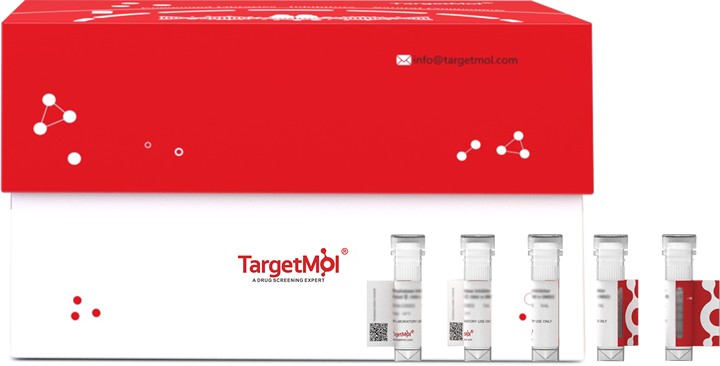Shopping Cart
- Remove All
 Your shopping cart is currently empty
Your shopping cart is currently empty

CCR6 Protein-VLP, Human, Recombinant (Flag) is expressed in HEK293 Cells. The accession number is P51684.

| Pack Size | Price | Availability | Quantity |
|---|---|---|---|
| 20 μg | $983 | Backorder | |
| 100 μg | $2,080 | Backorder | |
| 500 μg | $7,450 | Backorder |
| Biological Activity | Immobilized CCR6 Protein-VLP, Human, Recombinant (Flag) (Cat#TMPY-07064) at 5 μg/mL (100 μL/well) can bind Anti-CCR6 Monoclonal Antibody, Human IgG1, the EC50 is 1-5 ng/mL. |
| Description | CCR6 Protein-VLP, Human, Recombinant (Flag) is expressed in HEK293 Cells. The accession number is P51684. |
| Species | Human |
| Expression System | HEK293 Cells |
| Tag | N-Flag |
| Accession Number | P51684 |
| Synonyms | STRL22,GPR-CY4,GPRCY4,GPR29,DRY-6,DRY6,DCR2,CMKBR6,CKR-L3,CKRL3,CD196,CCR-6,CC-CKR-6,C-C CKR-6,BN-1 |
| Construction | A DNA sequence encoding the Human CCR6 (P51684) (Met1-Met374) was expressed with a flag tag at the N-terminus. |
| Molecular Weight | 43.49 kDa (predicted) |
| Endotoxin | < 1.0 EU per μg of the protein as determined by the LAL method |
| Formulation | Supplied as sterile 50 mM Hepes, 150 mM NaCl, 10% Trehalose, pH 7.2. Please contact us for any concerns or special requirements. Please refer to the specific buffer information in the hardcopy of datasheet or the lot-specific COA. |
| Stability & Storage | Samples are stable for up to twelve months from date of receipt at -70℃. Store it under sterile conditions at -70℃ or lower. It is recommended that the protein be aliquoted for optimal storage. Avoid repeated freeze-thaw cycles. |
| Shipping | It is supplied and shipped as liquid with dry ice. |
| Research Background | Chemokine receptors CCR6 and CCR7 have been reported to play important roles in T cell migration and organ-specific metastasis of various tumors. The expression levels of CCR6 and CCR7 in tumor tissues in patients with lymph node metastases than those without lymph node metastases. CCR6 and CCR7 expressions were also detected in metastatic lymph nodes. CCR6(+) subset of CD4(+) regulatory T cells, a newly characterized subset of Tregs, has been reported to contribute to local immune inhibition. There is a new subset of tumor-resident Tregs, CCR6(+) Tregs, may be dominantly responsible for the immunosuppression in tumor immunity and a potential predictor of the poor prognosis of breast cancer. |

Copyright © 2015-2025 TargetMol Chemicals Inc. All Rights Reserved.